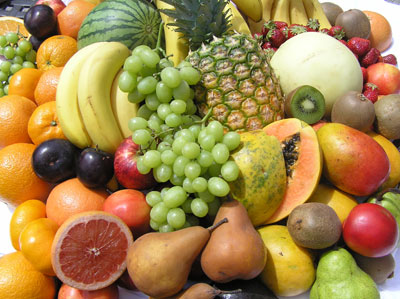
(Continued from Part 1)
Emotional Poise
You sit down to a lovely dinner meal with your beloved. A warm atmosphere pervades. You and your loved one enjoy your first few bites. Then the bomb drops, the argument starts, the atmosphere shatters, and everyone is upset. Your insides begin to feel as if they have been tied in knots, and your food feels like a rock in your stomach. “I can’t eat now; “I’m too upset,” you say.
Ever try to eat a calm meal with people getting up and down from the table, several conversations going on, people leaving and entering the room, and other frantic activity going on all around you? It is highly stressful, if even possible. There is a reason the B vitamins are known as the “stress” vitamins. When you are worried, fearful, in doubt, under pressure, or in any way stressed, you use up B vitamins at an immensely accelerated pace compared to the norm. Virtually all of your bodily chemistry is affected by your thoughts.
When you are lacking in emotional poise, your digestion and your nutrition are (not insignificantly) compromised.
Water
“‘t drink the water” used to be a very popular phrase for tourists visiting third-world and emerging nations. A variety of microbes in the water led to various rather severe versions of indigestion, malabsorption, and diarrhea. Some were even life threatening. The water we drink, or don’t drink, is critical to our nutrition.

When we are dehydrated, the dehydration extends to every cell of the body, critically affecting cellular nutrient uptake and toxin elimination. Overhydrated, we run the risk of diluting our blood to the point that the electrolytes therein cease to do their job effectively. Keeping properly hydrated (typically indicated by urinating almost clear urine of satisfactory volume eight to twelve times in every 24-hour period) is essential to maintaining healthy nutrition. Distillation or reverse osmosis provide the best water available. Water that is rich in inorganic minerals will tend to lead to the development of kidney stones, hardening of the arteries, and other sclerotic conditions.
On top of all this, water is used to cool nuclear reactors. The runoff water is high in strontium 89 and strontium 90. These radioactive substances affect all those that live nearby, (levels are higher closer to the reactor, but even 40 miles from a reactor there is still evidence of strontium 90) with children being the most susceptible. Strontium levels in the teeth of children with cancer is almost twice as high as levels in other children.
Sleep

When sleep quality is compromised, such as by not being able to achieve deep levels of sleep for any reason, hormones and mood are adversely affected. Insufficient sleep leads to lack of energy, reduced physical activities, and lowered overall nutriment intake and absorption. Most people spend a large part of their life sleep deprived. They rely upon alarm clocks, coffee, refined sugar, spicy foods, and other stimulants to have enough energy to get through the day. Each use of stimulants drains the adrenals, and increases the loss of a wide number of nutrients. The more tired you become, the less efficient your digestive system gets. It seems that one of the best things you can do for your nutrition is get a good night’s sleep, every night.
Digestion and Absorption
The familiar saying “you are what you eat” seems straightforward and true enough, until you examine it a bit more deeply. Of course, in reality, you are what you absorb and do not eliminate.
The condition known as malabsorption syndrome (MAS) causes one or many of the various nutrients that we consume to be improperly absorbed by the intestines. There are literally dozens of potential causes of MAS, ranging from, but not limited to enzyme production failure, congenital defects, disease of any of the digestive organs, injury, infection, surgery, radiation “therapy,” and even the use of antibiotics. The list of symptoms is equally as long, with some of the most common being anemia, diarrhea, edema, muscle cramping, muscle wasting, and perhaps most important, malnutrition. Various vitamin deficiencies can occur with MAS, accompanied by their specific associated symptoms. Mineral deficiencies can also occur due to MAS, resulting in any number of symptoms ranging from muscle cramps to heart failure. Indeed, absorption of our food is perhaps taken for granted, but is in every way as important to our nutrition as the food we eat.
The better your digestion, the more of the nutrients in food you stand to absorb and utilize. So many factors affect digestion that this article could not begin to list them all. It is enough to say that without good digestion, good nutrition is essentially impossible to achieve.

Food combinations
Let’s say that your digestive system is working perfectly, and you have done your homework and know how to make good food choices. You treat yourself lovingly with your food, and always pick the highest quality of fruits and vegetables available. Still, you suffer from indigestion, foul gas, and troublesome eliminations. The problem could be that you are not combining your food properly so as to foster optimum digestion.
A simple awareness of which food types tend to digest best together can go a long way toward enhancing digestion. The better you digest your food, the more the nutrients in that food become available to you.
Starchy foods, should you choose to eat them, digest best with greens and other raw vegetables. Fatty foods also digest best with greens and vegetables. Fruits digest best with other fruits of relatively similar water content. Fruit also digests well with lettuce or celery. Acidic fruit, such as citrus or pineapple, digests well with raw vegetables, and even with most fatty foods.
Keeping the total number of ingredients in a meal as low as possible is always good for digestion. Variety over the course of the year is good for nutrition, but simplicity at each meal is also essential for nutrition, as it offers optimum opportunity for digestion. The model for optimum digestion demonstrated by animals in the wild is to eat “one food at a time, when hungry, until full.” This practice will maximize your nutrition, and surprisingly enough, your enjoyment of the food you eat.
Biological Transmutation
I’ll bet you didn’t expect to see biological transmutation on MY list. Many people equate biological transmutation with alchemy. However, the two are not synonyms. Alchemy is akin to turning straw into gold, or one element into another, and although the term is commonly bandied about in raw-food circles today (often in reference to various “elixirs” and other pricey concoctions), it invariably adds up to so much hogwash.
Biological transmutation, on the other hand, is performed by the body all the time. For example, we convert one amino acid into another, or one form of fat into another, or sugars into different forms of sugars. We produce sugars from fats and proteins and even manufacture fats from proteins and sugars. We create enzymes, co-enzymes, and a host of other substances from the raw materials we consume. We even recycle the materials released into the blood from cellular degeneration, converting the debris into whatever structures are needed. Indeed, if it weren’t for biological transmutation, our bodies would never be able to be well-nourished or even to maintain homeostasis.
Good nutrition is invariably the result of healthful living. Nothing else will get you there. Sure, food plays a role in your nutrition, but it is your lifestyle that is critical. Healthful living results in health, and all factors of health are interrelated, and interdependent. Anything other than healthful living results in symptoms. Should you have symptoms, of any kind, you may want to consider correcting their lifestyle cause(s), rather than treating them.

